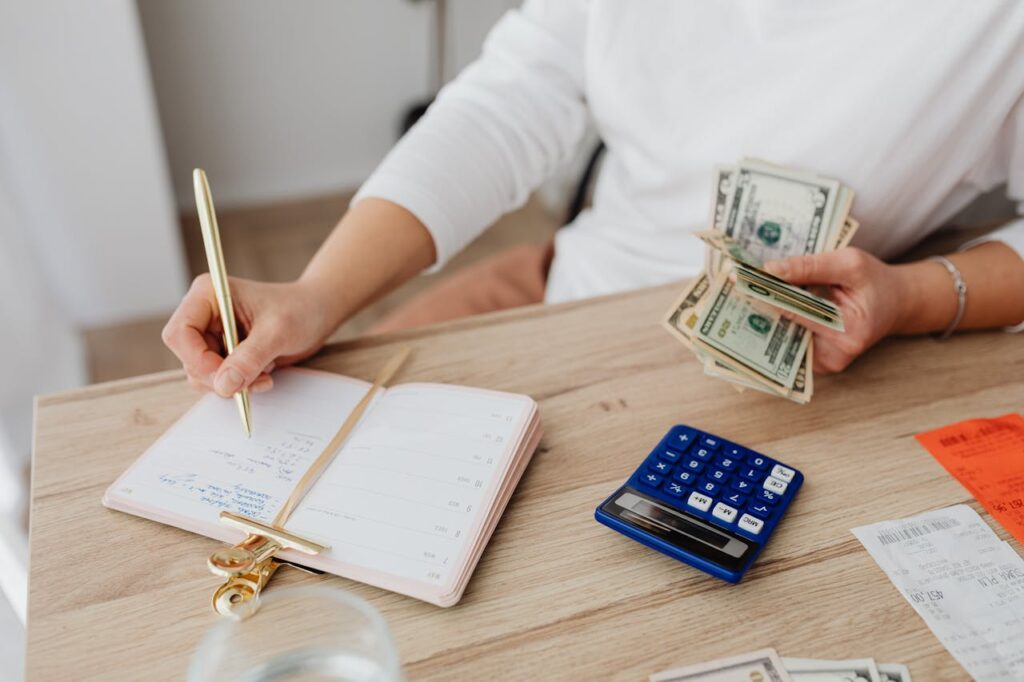Physical Address
304 North Cardinal St.
Dorchester Center, MA 02124
Physical Address
304 North Cardinal St.
Dorchester Center, MA 02124

Debt—it’s a word that sends a chill down many people’s spines, and for good reason.
While certain debts, like mortgages or student loans, can be part of a broader financial plan, unnecessary debt can be a major burden on your life. It eats away at your finances, adds stress to your mental health, and limits your ability to build the life you want.
So, what exactly does unnecessary debt cost you, and how can you escape it? In this article, we’re diving into the true cost of unnecessary debt and offering five practical ways to break free. Don’t worry, we’ll make it as stress-free and clear as possible!
Before we dive into the strategies for escaping unnecessary debt, let’s take a close look at what it’s really costing you—not just financially, but also in other aspects of your life. When you understand the full impact, you’ll be even more motivated to make a change.

Let’s start with the obvious: unnecessary debt takes money away from you that could be used for more important things.
When you borrow money for things that don’t hold long-term value—think impulse shopping, dining out constantly, or taking on high-interest payday loans—you’re stuck paying for those purchases long after the excitement has worn off.
Over time, this can drain your financial resources, making it harder to save, invest, or afford things that truly matter, like your retirement, homeownership, or a family vacation.
But here’s the kicker—this constant financial drain often leads to stress and anxiety. Worrying about how you’ll make your next payment can take a serious toll on your mental health, affecting your overall happiness and sense of security.

Unnecessary debt often comes with high-interest rates, particularly with credit cards, payday loans, or personal loans. Let’s say you have a $2,000 balance on a credit card with an interest rate of 20%.
That means you’re paying $400 a year in interest alone—not to mention how much you’re paying in fees.
When you don’t pay off the balance quickly, interest builds on top of interest, and your debt snowballs. What was once a manageable amount can quickly spiral out of control, making it harder to catch up.
When you’re stuck paying off debt, you miss out on opportunities that could help you grow financially. Maybe you want to save for a down payment on a house, invest in your education, or start your own business. But because your resources are tied up in high-interest debt, your financial freedom is restricted.
You may find yourself postponing big dreams or feeling like you’ll never get ahead. The truth is, unnecessary debt limits your ability to build wealth and work toward your goals.
Your credit score is a key factor when it comes to making big financial decisions—like buying a car, a house, or even getting approved for a new credit card. But unnecessary debt can hurt your credit score by increasing your debt-to-income ratio and lowering your credit utilization rate.
For instance, if you’re maxing out credit cards or taking on new loans to pay off old ones, your credit score will likely drop. This can result in higher interest rates when you do need to borrow money, costing you even more in the long run.
Debt doesn’t just impact your wallet—it can also affect your relationships. Constant financial stress can lead to arguments and frustration, particularly in partnerships or marriages.
It’s hard to feel secure when you’re constantly worried about how to make ends meet, and those worries can spill over into other areas of your life.
When you carry unnecessary debt, the emotional toll it takes on you can lead to isolation, anxiety, and even relationship breakdowns. It’s one of the leading causes of stress in many households.
The good news is that you don’t have to stay stuck in a cycle of debt forever. With a clear plan and the right mindset, you can break free and regain control of your finances. Let’s explore five actionable steps that can help you escape unnecessary debt.
The first step to escaping unnecessary debt is to get a clear picture of where your money is going. Many people don’t realize how much they’re spending on things that aren’t necessary or aren’t bringing long-term value to their lives.
Start by tracking all your expenses for at least a month. Write down every single thing you spend money on, whether it’s a coffee run or a large purchase. You can use budgeting apps, spreadsheets, or even a good old-fashioned pen and paper. The goal here is to see where your money is leaking.
Once you have a clear picture of your spending, create a budget that works for you. This should include all of your fixed expenses (like rent or utilities), flexible expenses (like groceries), and savings goals. The idea is to allocate your income in a way that allows you to live within your means and set aside money to pay off debt.
A good rule of thumb is the 50/30/20 budget: 50% of your income goes to needs, 30% to wants, and 20% to savings and debt repayment.
The next step is to tackle your debt. If you have multiple debts, focus on paying off the one with the highest interest rate first. This is known as the debt avalanche method, and it will save you the most money in interest in the long run.
Make a list of all your debts, including the balances, interest rates, and minimum payments. Once you have everything laid out, focus on the debt with the highest interest rate first. Pay as much as you can toward this debt while making minimum payments on others.
Once your highest-interest debt is paid off, take the money you were using to pay it down and apply it to the next highest-interest debt. This will create a “snowball” effect, allowing you to pay off your debts faster and with less interest.
One of the most effective ways to escape unnecessary debt is to cut back on unnecessary expenses. This doesn’t mean you have to give up everything you enjoy, but being mindful of where your money is going can make a huge difference.
Go through your expenses and identify areas where you can cut back. For example, you might be paying for subscriptions you rarely use, eating out too often, or shopping for things you don’t really need. Cutting these out, even temporarily, can free up more money to put toward paying off debt.
Once you’ve freed up extra cash, start building an emergency fund. Having a safety net will help prevent you from falling back into debt in the future when unexpected expenses arise. Ideally, aim for 3-6 months’ worth of living expenses.
If you have multiple high-interest debts, consolidating them into a single loan or refinancing them might be an option. Debt consolidation allows you to combine all your debts into one, ideally with a lower interest rate.
Look into personal loans or balance transfer credit cards with a 0% interest rate for a promotional period. This will give you a break from high interest and make it easier to pay down your debt.
If you have a large loan with a high interest rate, consider refinancing it to a lower rate. This can lower your monthly payments and save you money in the long run.
If you’re struggling to make a dent in your debt, consider finding ways to increase your income. Whether it’s taking on a part-time job, freelancing, or selling unused items, any extra cash can be applied directly to paying off your debt.
Look into freelance opportunities in your field or take on side gigs to earn extra cash. Websites like Upwork, Fiverr, or TaskRabbit can be great platforms for finding flexible work.
Declutter your home and sell items you no longer need or use. This can generate some extra cash that can go straight to paying down your debt.
Escaping unnecessary debt takes time and commitment, but with the right approach, you can regain control of your finances and create a brighter future.
By tracking your spending, focusing on high-interest debt, cutting back on expenses, consolidating debt, and finding ways to boost your income, you can break free from the chains of debt and build a more secure and peaceful life.
Remember, it’s not about perfection—it’s about progress. Stay patient, stay consistent, and watch as you gradually build the life you deserve. Your financial freedom is within reach, and the steps you take today will lead to a more prosperous tomorrow.
Here are 11 secret passive income streams that actually work.